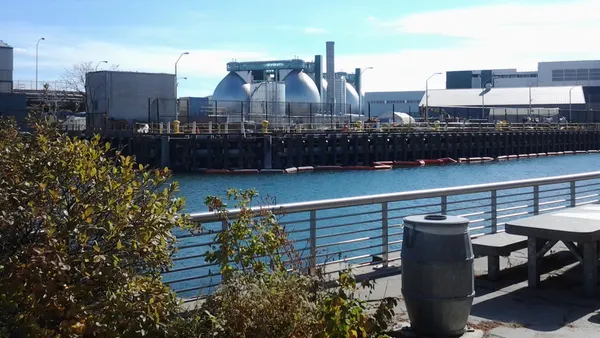Dive Brief:
- Colorado Gov. Jared Polis signed a pair of bills in recent weeks that would tighten standards for compostable product labeling and initiate a study into requiring organics diversion statewide.
- The laws, SB23-253 and SB23-191, will push forward recommendations in the state's organics management plan that published last August. The plan found that just 5.8% of the total generated waste in Colorado was composted or beneficially reused.
- That plan, which the Colorado Department of Public Health and Environment commissioned even after a bill to mandate it failed, had also identified that demand for compost is five times greater than the volume currently produced in the state.
Dive Insight:
State Sen. Lisa Cutter, a co-sponsor on both bills, lauded the labeling bill’s signing in a statement. She decried the "greenwashing" that the bill seeks to address, and she said improperly labeled products are causing contamination and "depriving compost businesses of the opportunity to process and sell this valuable organic material."
"This new law will set standards that make it easier for consumers to understand what is truly compostable, help compost businesses, divert materials from landfills and improve soil health," Cutter said.
Beginning Jan. 1, 2024, SB23-253 will prohibit product manufacturers from labeling or otherwise decorating products in a way that could be “reasonably anticipated to mislead consumers” into thinking the product is compostable. Beginning July 1, 2024, producers also will be required to receive independent, third-party certification to market their products as compostable and clearly mark products as compostable to ensure proper disposal.
For the organics diversion study, SB23-191 will direct the agency to look into pathways for implementing organics diversion requirements across the state. CDPHE is expected to examine existing studies and programs inside and outside the state like Denver’s recently adopted Waste No More ballot initiative, which requires all Denver businesses to provide compost and recycling pick-up services alongside traditional trash pickup.
The study will create an infrastructure development plan for the state and “actionable parameters for local governments to use to determine if, where, and what types of organics processing infrastructure is needed and basic toolkits to help local governments build the infrastructure,” according to the official bill summary. The report is due by Aug. 1, 2024.
The state's current recycling and composting diversion rate lags the national average, CDPHE found in its report last fall. But it noted that certain metrics belied progress on organic waste: Recycling and composting diverted 15.3% of MSW in 2020, a decline from 15.9% in 2019. That was largely due to a fire at a wood waste recycling facility in 2020. "Had this recyclable material not been lost to fire, the MSW diversion rate would likely have increased," the report notes.
The state still has plenty more organics tonnage it can divert from landfills. CDPHE estimated that Colorado has capacity to manage an additional 127,000 tons to 157,000 tons of organic materials. In addition, the Front Range area, which includes population centers like Denver and Colorado Springs, could divert up to 2.3 million tons of organics feedstock if 75% of organics from MSW and 50% of organics from industrial sources were diverted.
CDPHE included in its report a recommendation to enact compostable product labeling, noting that it would reduce plastic contamination in the waste stream. The issue has bedeviled the state's largest composter, A1 Organics, which changed its accepted materials list this spring to bring down its 10% contamination rate.
Other recommendations from CDPHE included a phased yard waste disposal ban and mandatory food waste diversion for large generators.










